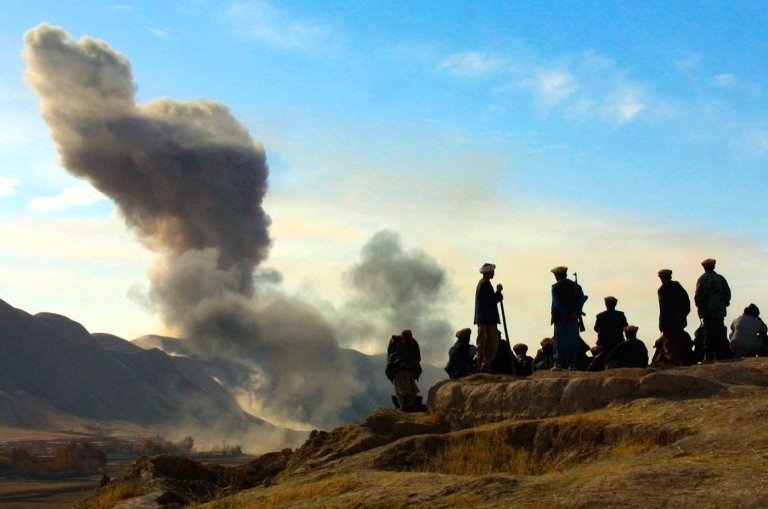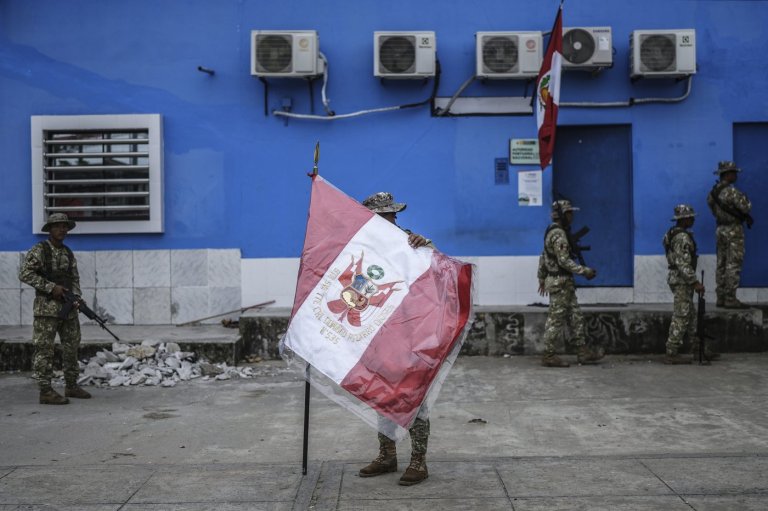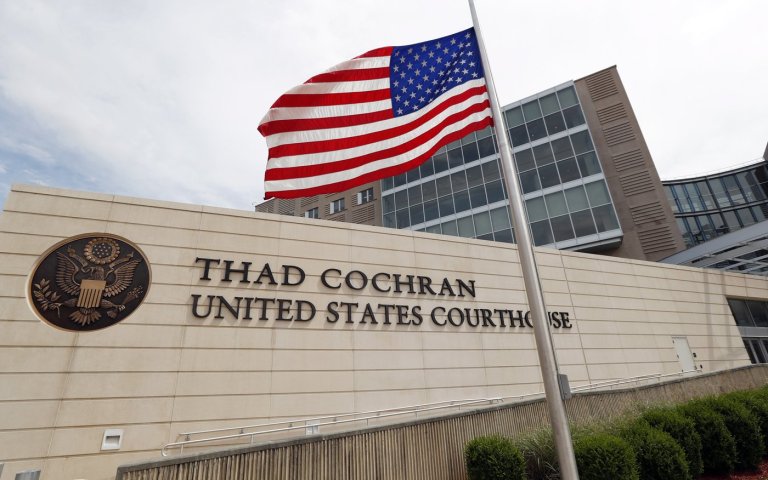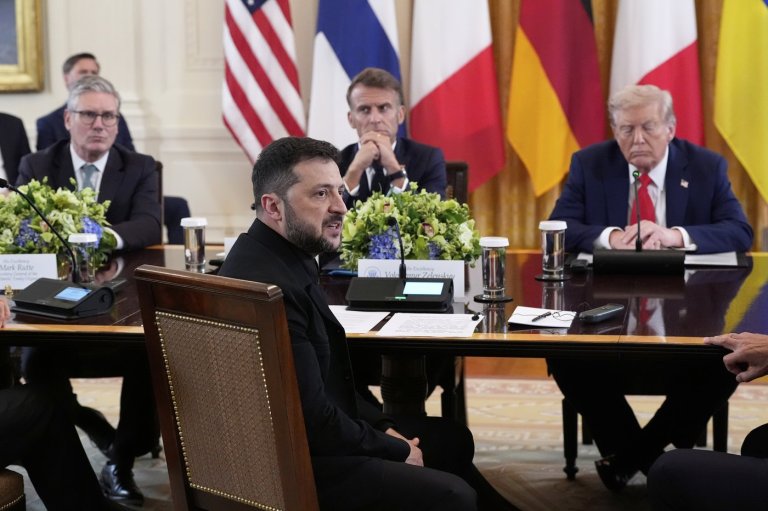Super Tuesday Aftermath; Possible MH370 Debris Discovered; War Veterans Find New Mission Protecting Children; U.S. Special Forc
xfdls IDESK-01
Veterans Find New Mission Protecting Children; U.S. Special Forces Capture
ISIS Operative; Trump Dances around KKK Endorsement; Kelly Back on Earth
after 340 Days in Space. Aired 10-11a ET – Part 1>
McKenzie; Lynda Kinkade; Van Jones; Jeffrey Lord>
slew of contests known as Super Tuesday; Front-runners Hillary Clinton and
Donald Trump each picked up seven states, moving them a big step closer to
clinching their party nominations; A piece of plane debris has been
discovered on Mozambique’s coast, according to a U.S. official, and it’s
from a Boeing 777; Across the country, working with Homeland Security
investigations, members of the HERO Child Rescue Corps have helped identify
and arrest dozens of child abuse suspects and rescue the children being
abused; What is more outrageous is not just that Donald Trump disavowed
knowing about the KKK or David Duke is that by Donald Trump’s own admission
he knows about them; Astronaut Scott Kelly bids farewell to the
International Space Station and plummets back to Earth>
Astronautics and Space>
[10:00:00]
(MUSIC PLAYING)
ROBYN CURNOW, CNN HOST (voice-over): Ahead at the INTERNATIONAL DESK, Donald Trump and Hillary Clinton have big nights.
Will Republicans, though, embrace Trump if he is the nominee?
The latest on the race to the White House here at the INTERNATIONAL DESK.
(MUSIC PLAYING)
CURNOW: Hi, everyone, welcome. I’m Robyn Curnow at the CNN Center. Well, the U.S. presidential campaigns are marching forward a day after a slew of contests known as Super Tuesday; 12 states voted.
Front-runners Hillary Clinton and Donald Trump each picked up seven, moving them a big step closer to clinching their party nominations. But it’s not a done deal just yet.
Here’s a look at where it all stands. Hillary Clinton is still way ahead of Bernie Sanders in the Democratic race. Sanders says, though, he’s in it for the long haul.
On the Republican side, Ted Cruz lived to fight another day after winning his home state of Texas and two others but he still has a long way to go to catch up to Trump.
Marco Rubio picked up his first state, Minnesota. John Kasich and Ben Carson are also still in the race. Don’t forget them. They are, though, very far behind.
Let’s take a closer look at how it played out for the Republicans. CNN’s Jim Acosta has this.
(BEGIN VIDEOTAPE)
DONALD TRUMP, REPUBLICAN PRESIDENTIAL CANDIDATE: We have expanded the Republican Party.
JIM ACOSTA, CNN SR. WHITE HOUSE CORRESPONDENT (voice-over): It was a big night for Donald Trump. The clear front-runner now well on his way to clinching the Republican nomination.
TRUMP: The Republicans have tremendous energy. The Democrats don’t. They don’t have any energy. Their numbers are down. Our numbers are through the roof.
ACOSTA (voice-over): The billionaire businessman racked up seven state wins, including delegate-rich Virginia, Georgia and Tennessee.
TRUMP: I think we’re going to be more inclusive. I think we’re going to be more unified and I think we’re going to win in November.
ACOSTA (voice-over): After days of controversy over support from white supremacists, Trump tried to strike a more diplomatic tone, claiming he can unify the country.
TRUMP: I’m a unifier. I know people are going to find that a little bit hard to believe but, believe me, I am a unifier.
SEN. TED CRUZ (R), TEXAS: The path to beating him is for us to unify.
ACOSTA (voice-over): Ted Cruz also called for unity, asking the other three non-Trump candidates to drop out after he won his home state of Texas, neighbouring Oklahoma and Alaska.
CRUZ: Listen, if we remain divided, then in all likelihood Donald Trump becomes the nominee. That result was made clear tonight. But I think Donald has a hard ceiling of 35-40 per cent.
ACOSTA (voice-over): Cruz is making the case that he’s the GOP’s only hope to win the White House.
CRUZ: For those who have supported other candidates, we welcome you on our team, standing united as one.
ACOSTA: But Trump said GOP leaders should get behind him — or else.
TRUMP: I’m going to get along great with Congress. OK? Paul Ryan, I don’t know him well but I’m sure I’m going to get along great with him. And if I don’t, he’s going to have to pay a big price. OK?
ACOSTA (voice-over): And even on night of victories, Trump continued the war of insults with Marco Rubio.
TRUMP: I know it was a very tough night for Marco Rubio. He had a tough night. But he worked hard. He spent a lot of money. He is a lightweight.
ACOSTA (voice-over): But Rubio did pull off his first win in Minnesota and vowed to fight on.
SEN. MARCO RUBIO (R), FLA., PRESIDENTIAL CANDIDATE: There will never come a time in this race where our supporters are asking us to get out and rally around Donald Trump. What people are saying fight is, fight as hard as you can to save the party of Lincoln and Reagan from a con artist who refuses to criticize the KKK.
(END VIDEOTAPE)
CURNOW: Jim Acosta reporting there. Republicans voted in large numbers, setting records for turnout in every Super Tuesday state except one.
So with Donald Trump surging ahead, what is next for the Republican Party?
For that we’re joined by Republican political strategist Russ Schreifer in Washington.
Great to speak to you again, Russ. So Donald Trump is all but the Republican nominee here.
Is this a crisis for the Republican Party?
RUSS SCHRIEFER, REPUBLICAN POLITICAL STRATEGIST: Well, it’s certainly going to be a big divide in the Republican Party. I think you have the people who are supporting Trump — and he won a lot last night. He talks about winning, winning, winning, he won, won, won.
I think Ted Cruz also had a pretty good night in winning his home state of Texas, which was a must-win for him. He won Oklahoma and he won the caucuses up in Alaska. I don’t think that he has this thing locked up quite yet. I think there’s another couple of weeks; the delegate math isn’t quite there.
But I think over the next two weeks you’re going to see the anti-Trump forces of the party really trying to get together and to beat Donald Trump. And they have to win. They have to win in both the state of Florida and then also in the state of Ohio in two weeks.
CURNOW: So what exactly do these anti-Trump forces within the party do?
He is very far ahead. Most pundits you speak to say it’s quite unlikely that either of —
[10:05:00]
CURNOW: — these candidates, Cruz or Rubio, will manage to catch up with him. There is this dissent and there is this conversation what to do if you’re in your party and you don’t agree with Donald Trump.
Is there a third party candidate option?
Are people just not going to pitch up at the convention?
How serious is this?
SCHRIEFER: I think it’s very serious. I think that — and history would tell you that, during the primary season, they are very contentious and people are very divided and that the party does try to get together and it will be up to Donald Trump in some ways to bring the party together once — if he is the nominee and some time maybe at the end of April or early May.
I think we could draw all kinds of scenarios.
Will there be a third party?
Will there be a contested convention?
Will there be a walk-out at the convention?
We don’t know what’s going to happen and that’s what’s, I think, so interesting about this election cycle. All the predictors and predictions I think you could just throw out the window.
CURNOW: Absolutely, so you don’t seem overly concerned that there’s going to be some sort of historic rebellion.
That said, we heard Mr. Trump there, saying he’s broadening the base. He has, energized the electorate. He has.
But in the same breath, he kind of threatened Paul Ryan, one of the leaders of the Republican Party.
Can he be that unifier?
Is there a Donald 2.0?
SCHRIEFER: Well, we’ll have to see. One of the things about Donald Trump is that he is a master at manipulating the media. And I think that you saw this a little bit last night. It was very interesting that he decided not to do a big rally but he decided to do that press conference.
And I think that Donald Trump last night was much more subdued, much more trying to project this idea that possibly he could be President of the United States. And I think that was — I don’t know if that was intentional but it was certainly a shift from the Donald Trump that we have seen.
If he wants to win and if he wants to unify the party, he’s certainly going to have to change his tone in part.
CURNOW: Indeed. And the optics of that clearly sending some sort of message, trying to look presidential.
Let’s talk about Marco Rubio and Ted Cruz. As you said at the beginning of this interview, to be a winner, you need to win.
Is it time for Rubio to step out?
Should the GOP back Cruz?
What is the conversations being had about these anti-Trump candidates?
SCHRIEFER: I think this morning in Rubio headquarters they are going to have to look really hard. Listen, I have been there with candidates who haven’t made it all the way through the presidential primary. You have to look really hard at your resources.
Do you have the money to move forward and do you have the path?
SCHRIEFER: It’s not so much about the — whether or not you’re going to win next but do you have a rationale for continuing to stay in the race? And I think the Rubio folks are going to have to look really hard at themselves and decide, do they want to compete over the next week, two weeks?
And do they believe that they can win in Florida?
If Marco Rubio can’t win in Florida, that’s going to be a big blow to not just his presidential ambitions but to his future political ambitions.
CURNOW: Yes, there’s a lot riding on this. And Florida is a key state once again in all of this.
Russ, thanks so much.
SCHRIEFER: You’re welcome, Robyn. Thank you.
CURNOW: One of the most talked about moments of the night took place at Trump’s victory speech. But this time it wasn’t Trump who was the centre of attention.
Chris Christie, the New Jersey governor and former presidential candidate, largely stole the spotlight with his reactions to Trump’s speech. People took to Twitter — look at that — to discuss the meaning behind Christie’s facial expressions.
Christie has faced backlash in his home state for endorsing Trump.
Jonathan Mann, you’re here; you kind of had a little giggle next to me as I’m reading that —
(CROSSTALK)
CURNOW: We can watch that over and over again. And it’s been called — I mean, “The Washington Post” called that “wordless screaming.” And I think it did look like it.
JONATHAN MANN, CNN INTERNATIONAL CORRESPONDENT: Every time I see that video, I look at that man’s face and you just think about the adjectives to read into it.
Was it regret, was it anxiety, was it angst, was it buyer’s remorse?
Exactly. And there’s a back story to this, of course.
Chris Christie was a candidate for the presidency himself. He was running against Donald Trump. And he, in fact, called him “the entertainer in chief.” He was among Trump’s critics and then he dropped out because, well, Trump prevailed just about everywhere. Christie was way back of the pack and going nowhere.
So he retires from the race and then all of a sudden, he stunned the Republican Party by endorsing Trump. The most mainstream, most senior elected leader to come forward, to endorse Donald Trump and he’s roundly condemned for it and this is what we see as Donald Trump is speaking to the press, the words of a — the eyes of a man who looks uncertain.
You talk about “The Washington Post” piece. It was a funny piece. It was written by one of their comedy writers, Alexandra Petri (ph). And she said, his eyes, this wordless scream —
[10:10:00]
MANN: “When are they coming to airlift me out?”
His eyes, she said, were the eyes of a man who has gazed into the abyss and the abyss gazed back. And he endorsed the abyss.
People are having fun with this on the Internet. They’re having fun with it on Twitter. And it really — endorsements aren’t supposed to be an object of ridicule. This is just completely, completely backed — it’s basically the backlash against Christie is, first, was serious and very, very condemning.
But now he’s just a figure of fun in the party.
CURNOW: Indeed and that clearly wasn’t the idea. I mean he seems to — he has. He’s staked his whole political career on Donald Trump and that’s a dicey move if he wants more out of this.
MANN: And this is Chris Christie we’re talking about, not only the most —
(CROSSTALK)
CURNOW: In my mind, that’s the point. Let’s give us some context of who this man is.
(CROSSTALK)
CURNOW: He’s a big personality.
MANN: Big personality; not only the most senior Republican to endorse Trump but he’s also a man who’s known as a truth talker, a man who let the chips fall where they may, a straight shooter.
And here he is, doing something that even one of his primary backers said was an “astonishing display of political opportunism,” because what people are thinking is that Christie did this hoping that he might become the vice-presidential candidate. He might become attorney general.
He has been campaigning with Trump like they were joined at the hip ever since the endorsement. And even that has been ridiculed. There has been video that’s emerged of the two men sharing just a short comment, not knowing that there was a microphone on. And it was in Arkansas on Saturday.
Christie had just spoken in favour of the Trump candidacy and Trump comes up close to him and says, go home, get on the plane. And he literally throws him out of town. And this is Christie, who is standing in a passive position, usually where the —
(CROSSTALK)
CURNOW: Looking like a lackey.
MANN: Well, a lackey or a wife. I mean, this is where a candidate’s wife usually stands.
(CROSSTALK)
MANN: I’m not saying this because I support that but that’s traditionally where the candidate’s wife stands. Here’s Chris Christie, relegated to that position. He’s a bull in a china shop. Now he’s a very junior partner in a very dubious partnership.
CURNOW: It’s going to be interesting to see how this all plays out. Jon Mann, thanks so much.
MANN: You bet.
CURNOW: Well, you’re watching the INTERNATIONAL DESK. Ahead we see how the Democrats did on Super Tuesday.
(BEGIN VIDEO CLIP)
CURNOW (voice-over): There she is, Hillary Clinton and Bernie Sanders.
What happened to them?
We have that conversation — next.
(MUSIC PLAYING)
(COMMERCIAL BREAK)
(MUSIC PLAYING)
(BEGIN VIDEO CLIP)
HILLARY CLINTON, FORMER SECRETARY OF STATE, PRESIDENTIAL CANDIDATE: I believe what we need in America today is more love and kindness —
(APPLAUSE)
CLINTON: — because, you know what, you know what, it works. Instead of building walls, we’re going to break down barriers and build.
[10:15:00]
SEN. BERNIE SANDERS (I), VT., PRESIDENTIAL CANDIDATE: What I have said is that this campaign is not just about electing a president. It is about making a political revolution. And what that revolution is about is bringing millions and millions of people into the political process.
(END VIDEO CLIP)
CURNOW: It was a big night for Hillary Clinton in the U.S. Democratic presidential race, winning seven states on Super Tuesday. But as you saw Bernie Sanders is not dropping out. He’s still there after winning the four other states where Democrats voted.
CNN’s politics executive editor Mark Preston joins me from Washington.
Hillary there saying kind of like the — love makes the world go ’round. She’s feeling the love. Steadily, slowly collecting the delegates.
MARK PRESTON, CNN POLITICAL DIRECTOR: You know, Robyn, I think there is a big sigh of relief coming out of the Clinton campaign after last night. We can only go back about three or four weeks and you and I were talking about how the Hillary Clinton campaign was a little bit in disarray following Bernie Sanders’ trouncing of her in the New Hampshire primary.
But last night winning seven states, amassing more delegates, Hillary Clinton right now certainly in the pole position as the leader for the Democratic presidential nomination. The next two weeks very crucial for Bernie Sanders and Hillary Clinton as whoever is able to gain the momentum over the next couple weeks, Bernie Sanders could perhaps change the narrative of this race.
But if Hillary Clinton continues to do well, then it really spells doom for Bernie Sanders.
CURNOW: Indeed. There is a confidence; she does seem more comfortable as well, Mark, so much so that it seems like she has already pivoted to a general election and focusing on Florida.
PRESTON: Right, and in many ways this is what happens after a Super Tuesday when we see a landslide in some ways that we did last night, with Hillary Clinton winning those states and winning by large, large margins. We’ve also seen that on the Republican side with Donald Trump as well as he was talking more about how he was going to focus all his sergeants on Hillary Clinton.
But Hillary Clinton last night in her speech certainly was taking aim at Donald Trump. The Clinton campaign and certainly the Democratic Party right now truly believes that Donald Trump will become the Republican nominee and that they need to start focusing their attention on him.
But I do have to caution. Hillary Clinton is not going to wrap up this nomination until late April, perhaps into May. Bernie Sanders can stay in this race and he has vowed to stay in this race. So it will be an interesting few months for the Democratic Party.
CURNOW: He’s not going anywhere.
Let’s talk about voter turnout. We have seen, on the Republican side huge, broad voter turnout, energized by Donald Trump. On the other hand, the Democrats I think there’s a slight downturn in the number of people who are coming out.
What will that mean in a general election?
PRESTON: So a couple things. One is the turnout we’re seeing has got to be attributed to Donald Trump’s ability to reach beyond regular Republican reliable voters. He’s able to get folks who have not participated in the process, come into the process. So that is what we were seeing and certainly what we saw last night in many of these states.
When you look at that and you compare it to Democrats back in 2008, it was a different kind of feeling at that time. You had Barack Obama, the first African American serious candidate, and certainly one who went on to win the nomination and of course the presidency in two terms.
He was able to do the same type of thing except it was a different message at the time. Barack Obama talked about hope and change. Donald Trump talks about making America great again. But in the end, it does come to just being able to drive out base voters and, quite frankly, voters who never participated in the process prior.
CURNOW: Yes, but in many ways, Trump appealing to people’s prejudices and their worst fears. Obama, on the other hand, appealed to their better nature. But very much an indication, as you say, some similarities there in how that plays out. Mark Preston, as always, thank you so much.
PRESTON: Thanks, Robyn.
CURNOW: Well, coming up, it’s been nearly two years since Malaysia Airlines Flight MH370 vanished and investigators might have just found their second clue. The details just ahead.
(MUSIC PLAYING)
(COMMERCIAL BREAK)
[10:20:00]
(MUSIC PLAYING)
CURNOW: Take you to the United Nations, where we’re getting some news in. The U.N. Security Council has just voted unanimously to adopt tough new sanctions on North Korea. There’s Samantha Power there.
The resolution is designed to make a dent in the country’s nuclear and ballistic missile programs. Sanctions include mandatory cargo inspections, a weapons sale ban and a prohibition on the supply of aviation fuel. We’ll keep you updated on that story if there’s any more details.
Moving on, a small island chain in the Indian Ocean is bracing for flooding and dangerous waves after a powerful earthquake. The magnitude 7.8 quake struck several hundred kilometres off the coast of Indonesia. Australia’s bureau of meteorology issued a tsunami warning for the Cocos Islands 850 kilometres from the epicenter. But the U.S. Geological Survey says no tsunami has been observed.
And a piece of plane debris has been discovered on Mozambique’s coast, according to a U.S. official and it’s from a Boeing 777.
Could it be part of the long-missing Malaysia Airlines flight MH370?
David McKenzie joins me now live in Johannesburg.
Hi, there, Dave.
What more do we know about this?
DAVID MCKENZIE, CNN CORRESPONDENT: Oh, Robyn, the details are still pretty sketchy and they are coming out as we speak. What we do know is that this U.S. official is saying that a piece of a 777, likely to be the stabilizer skin of the horizontal stabilizer skin — that’s at the back of the plane – – has been found, according to that one U.S. official, off the coast or on the coast of Mozambique, the country in Southern Africa on the Indian Ocean.
They say it has been found by a process of elimination; it could be likely, according to another source, that this is, in fact, MH-370, the Boeing 777 that went missing almost exactly two years ago and very little still known exactly what happened to it.
Now put it into context a piece was confirmed by French authorities to be found last year in Reunion Island, to the east of Madagascar in the Indian Ocean that was part of that airline. So not out of the realm of possibility, though making calls to Mozambique, very little chatter on the ground there in Mozambique at this stage.
That U.S. official says that piece or fragment is on its way to Malaysia, where Malaysia Airlines, the airline in question, is obviously based; Malaysia Airlines saying at this point it’s speculative to comment — Robyn.
CURNOW: OK, thanks for that update. David McKenzie there, appreciate it.
Now to our special Freedom Project series. This week we are highlighting an elite group of U.S. military veterans called the HERO Corps. They are wounded vets who have come home and traded ground combat for a new mission, protecting children and chasing down child predators. Here’s Lynda Kinkade with this report.
(BEGIN VIDEOTAPE)
LYNDA KINKADE, CNN CORRESPONDENT (voice-over): These are the first steps in Steven Blackstone’s new life. The retired Air Force master sergeant is meeting his new boss and joining a Pascoe County, Florida, task force aimed at stopping the trade and trafficking of child pornography.
UNIDENTIFIED FEMALE: These children are actually tied up and gagged and bound and tortured. That’s how bad these images are.
KINCAID (voice-over): Camille Cooper (ph) works for the National Association to Protect Children. The organization trains U.S. war veterans and places them with law enforcement agencies around the country.
This is the program’s fifth year with the group planning to graduate its 100th hero. Across the country, working with Homeland Security investigations, members of the HERO Child Rescue Corps have helped identify and arrest dozens of child abuse suspects and rescue the children being abused.
UNIDENTIFIED FEMALE: Each of those offenders that they have arrested is going to have conservatively 13 victims —
[10:25:00]
UNIDENTIFIED FEMALE: — in their lifetime; 32 per cent are related to that child. Another 22 per cent are a close family friend. So you have the majority of these perpetrators that are within a child’s circle of trust that are producing this material.
KINCAID (voice-over): Blackstone, a former high-level criminal federal investigator in the military, says this program has given him a new mission.
STEVEN BLACKSTONE, HERO Child Rescue Corps: I was in the military for almost 21 years. Veterans and military personnel, we have a bias to action.
KINCAID (voice-over): And he says much of the motivation will come from his family.
BLACKSTONE: What motivates me is my 9-year-old and 4-year-old kids and this HERO program was the perfect opportunity for me to be involved in this kind of work, trying to stop a child’s sexual exploitation.
UNIDENTIFIED FEMALE: We thought we were just going to be saving these kids by bringing these veterans in to save them. We didn’t realize we saved the veterans in the process, too. So that’s been really moving.
KINCAID (voice-over): As for the child predators, Blackstone and his friends will soon be training their sights on he has this simple message.
BLACKSTONE: We’re coming. We’re coming for you.
KINCAID (voice-over): A warning for those who would abuse children and a promise for the victims that help may soon be on the way — Lynda Kinkade, CNN.
CURNOW (voice-over): To learn more about the work this group does, log on to our special section of our website. The address is cnn.com/heroes.
(END VIDEOTAPE)
CURNOW: Ahead here at the INTERNATIONAL DESK, Donald Trump’s controversial comments spark a fiery debate between two CNN contributors about race in the United States. Stay with us for that one.
(MUSIC PLAYING)
(COMMERCIAL BREAK)
(MUSIC PLAYING)
CURNOW: Welcome to the INTERNATIONAL DESK. I’m Robyn Curnow. Thanks for joining me. Here’s a check of the headlines.
(HEADLINES)
[10:30:00]
(MUSIC PLAYING)
CURNOW: Racial tension has been an underlying issue in the U.S. presidential race, often brought forward by Donald Trump’s controversial comments.
In an interview with CNN this week, Trump refused to reject an endorsement from the former leader of the Ku Klux Klan, a white supremacist group. Now the Republican front-runner had previously denounced the support and did so again after the interview.
But during CNN’s Super Tuesday coverage, two of our contributors got into an emotional debate over Trump dancing around this endorsement.
(BEGIN VIDEO CLIP)
VAN JONES, CNN HOST: You need to take a serious look at the fact that this man is playing fast and loose and footsie. When we talk about terrorism, he gets passionate. He says, no, this is wrong.
But when you talk about the Klan, oh, I don’t know, I don’t know. That’s wrong. And then you came on the air and you said, well, this is just like when Reverend Wright was speaking.
Reverend Wright never lynched anybody.
(END VIDEO CLIP)
CURNOW: Van Jones there and Jeffrey Lord, who is a Trump supporter, went on to accuse each other’s parties of stoking racial tensions. Now their debate spread across social media and both appeared on CNN a short time ago to further explain their views. Take a look.
(BEGIN VIDEO CLIP)
JONES: This thing trended on Twitter for two hours globally last night. I have heard from everybody I have ever known for like — literally third grade.
The reason that African Americans flinched, not just when he kind of hedged a little bit, which may have been a dog whistle, may not have been, we were upset earlier because he goes, well, look, I disavow.
Hold on a second, I disavow?
ISIS endorses me, “I disavow, let’s move on.”
Wait a minute. There’s a moment there, a leadership moment to aggressively say, I don’t want this; these people are wrong.
Everything you see about Donald Trump is passion and he will do something and it will take a whole media cycle.
You’re being endorsed by the equivalent of ISIS and all you say is “I disavow”?
We were shocked. That sent the shock waves.
Then when he comes back and is even more hedgy, that’s when the floor fell out from under the black community.
And we’re very concerned because this man could be the president. And if you’re the president, you should be leading. You shouldn’t be hedging. You should be — oh, I have a chance to denounce terrorism in my own country and you don’t do it and you’re Donald Trump, something’s wrong. That’s my feeling about it. That’s wrong.
Join the Conversation!
Want to share your thoughts, add context, or connect with others in your community?
You must be logged in to post a comment.


















